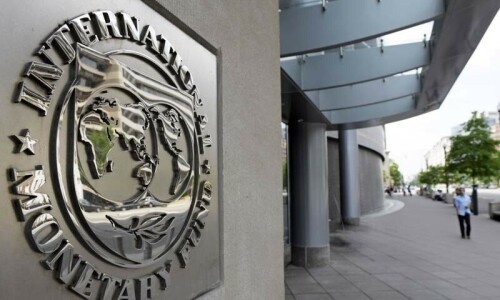NEW DELHI: India’s ruling Congress party, which must face the electorate by May next year, has emerged as the main political loser from the attacks on Mumbai as public outrage mounts, analysts say.
The Congress coalition’s inability to prevent the carnage, as well as a string of other militant assaults in the past year, has created an image of a weak government flailing in the face of security challenges.
Voters have been “badly shaken by the attacks and they hold the Congress responsible,” said Sanjay Kumar, of the Centre for the Study of Developing Societies in New Delhi, who tracks voting patterns.
Newspapers have been full of angry letters from citizens dismayed by the brazen attacks in which the militants reportedly arrived by boat and went on a killing spree that left 188 people dead.
“Widespread rage has replaced fear... directed not only at the terrorists who went on a brutal 60-hour rampage, but also at an inept and corrupt political dispensation,” The Times of India wrote in an editorial this week.
One of India’s leading stations NDTV in a special programme on Wednesday, marking the first week anniversary of the attacks, ran slogans saying “Action, not words” and “No more excuses.”
The government moved at the weekend to replace home minister Shivraj Patil, who was already under fire over previous attacks on Indian cities, with respected finance minister P. Chidambaram.
R.R. Patil, the home minister of Congress-ruled Maharashtra state of which Mumbai is the capital, was also given the boot after being quoted by the media as saying the attacks were a “small incident that could happen in big cities.”
But these sacrificial lambs were not expected to salvage Congress’ fortunes, already on the wane before the attacks with inflation, which hurts the party’s mass poor rural base the most, peaking at near 13 per cent in August.
“The Congress won’t be able to recover from these attacks, they are seen as not having been able to respond with determination and unity – they seem to have lost the plot,” said political columnist Parsa Venkateshwar Rao.
India’s Prime Minister Manmohan Singh, while well regarded for opening up the economy up to the world when finance minister in the 1990s, is widely seen as under the thumb of Sonia Gandhi, the party’s Italian-born president.
And Gandhi, the torch-carrier for India’s famed Nehru-Gandhi political dynasty, is often accused of lining up her son Rahul as the country’s next leader.
The Hindu nationalist Bharatiya Janata Party (BJP), led by 80-year-old Lal Krishna Advani, has tried to take advantage of the government’s difficulties, asserting it would have protected the country from attacks.
However, during the BJP’s term in 2001, militants staged an attack on the country’s parliament that brought nuclear-armed India and Pakistan to the brink of war.
In any event, analysts say it is unlikely the BJP will be able to translate the Mumbai attacks into victory in the national elections as they are in as much disarray as Congress with no significant presence in two of the country’s biggest states – Uttar Pradesh and Bihar.—AFP









































Dear visitor, the comments section is undergoing an overhaul and will return soon.